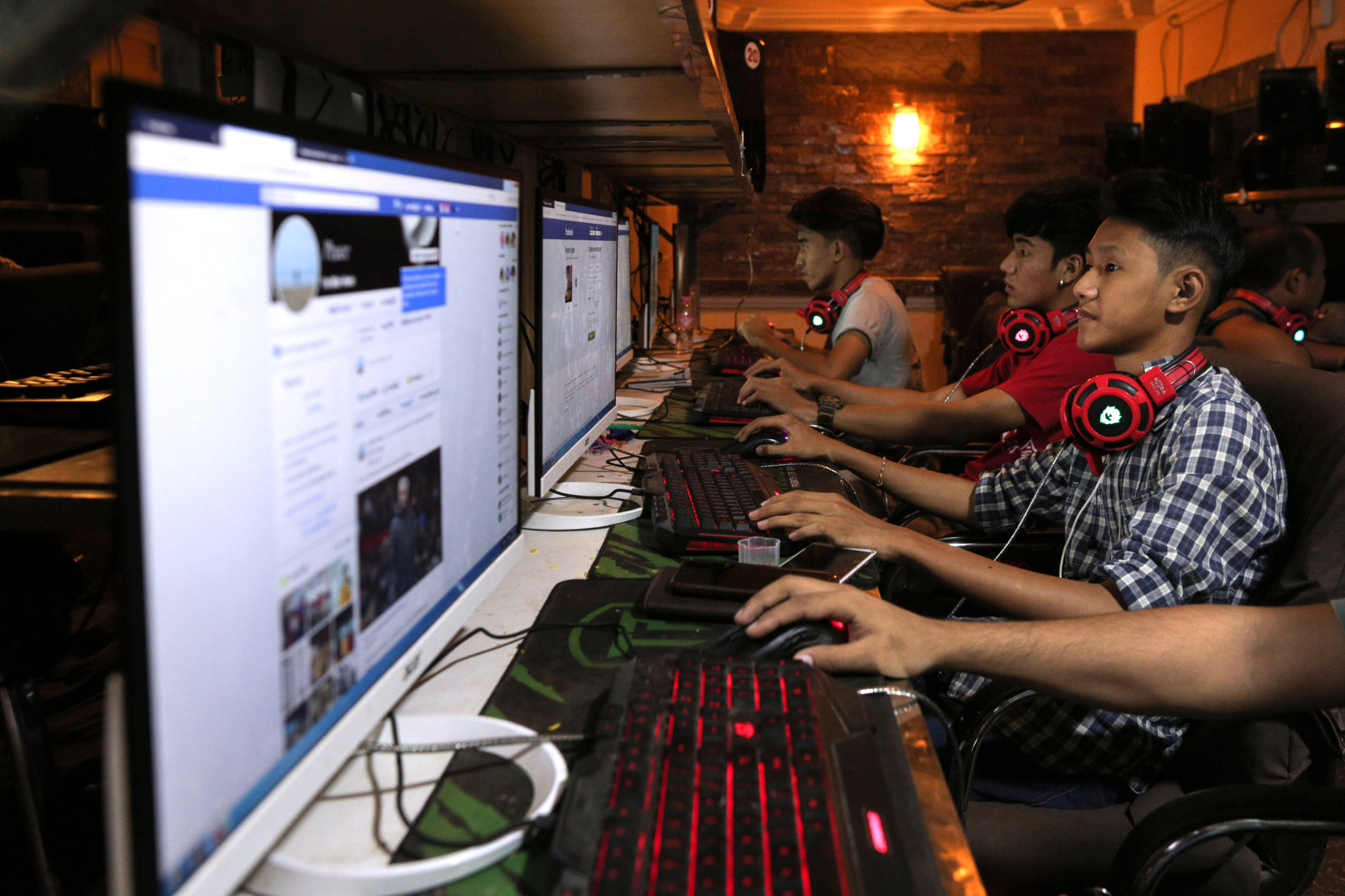Worldwide, Covid-19 information – and misinformation – has spread rapidly over the internet. In Myanmar, the case is no different, and an important conversation on media literacy among citizens has come in its wake.
“We are seeing many people are sharing fake news, myths and many mis- and disinformation on Facebook,” says Dr. Thant Thaw Kaung, Executive Director of Myanmar Book Aid and Preservation Foundation.
With Facebook’s Asia Pacific Community Affairs Director Clair Deevy he launched the project in 2018 to develop a media literacy curriculum for some 4,000 community residents.
Facebook has a complicated relationship with Myanmar and its citizens, stemming both from the only recent affordability of SIM cards in the country and the novelty of social media. Kaung refers to it as “information overload”, after decades of strict censorship under military junta rule that only began to end in 2011.
“There are many challenges with using Facebook. Most of our people know how to post, press ‘like’ and share a post mostly,” says Kaung. “Very few people go into the privacy and security settings of Facebook. Moreover, empathy, the difference between the physical and virtual world, and hate speech are rarely taught in Myanmar.
“Therefore, media literacy is so [important] for community people that they can search, analyse, create and share the right information on Facebook.”
Nearly half of Myanmar’s citizens are on Facebook – about 25 million users. Facebook has developed over the last 10 years as among Myanmar’s main communication, business and news sources.
During Covid-19, the Ministry of Health and Sports issued their stay-at-home order through the social media site and has advised the country’s residents to follow their page to stay updated on statistics of current cases. Information also includes up-to-date advice for those who have tested positive for the virus, health guidelines, and a daily situation update.
But challenges surrounding misinformation remain on Facebook, and companies like Yangon-based technology company Phandeeyar are coming up with their own ways to give Myanmar citizens reliable information on the social media platform.
Saijai Liangpunsakul, Phandeeyar’s Social Impact Director, works to monitor the spread of fake news online. It is one of the company’s main initiatives, along with providing accurate information about Covid-19.
“We’ve seen a lot of discrimination information against Chinese and migrant workers on the internet,” Liangpunsakul says, adding that it’s important to be careful about what to share and post as discriminatory posts could result in ethnic conflict and violence.
“This could go beyond the pandemic.”
Phandeeyar’s Facebook page ‘Dr. Thuta Chatbot’ has already garnered 45,000 users and its posts have reached five million people in Myanmar. The Chatbot questions and posts focus on dispelling false information, their most popular feature being a “mythbusters” quiz.
Dr Thuta also provides daily updates on the number of Covid-19 cases using statistics provided by the Ministry of Health and Sports.
“The goal is to provide simple, accurate, reliable information,” Liangpunsakul says of the Chatbot’s and Phandeeyar’s mission.
Currently, many Dr Thuta followers live in urban areas, such as Yangon and Mandalay. But Phandeeyar is using Facebook ads to promote awareness with those living in rural areas and female users. They’re also listening to their users’ questions to create a more interactive space.
As the virus spreads, Phandeeyar is shifting their focus to the more vulnerable populations, such as victims of gender-based violence, elderly people, students, those with disabilities, and migrant workers.
It should not be a question between, choose between whether you want to [be] healthy or you want to share your personal data … I think it’s possible as a tech company. We need to look at both
Saijai Liangpunsakul, Social Impact Director at Phandeeyar
“There’s a lot of information available in English, but we realised that in local Burmese language, in local languages, there’s not [much] information that is available,” Liangpunsakul says of mental health resources.
She added that Phandeeyar plans to provide contact numbers for both mental health and domestic violence hotlines.
Another app ‘Saw Saw Shar‘ can be used to find the location of new Covid-19 cases across Myanmar using information from the Ministry of Health and Sports to help people avoid those areas. Other maps can even identify grocery stores Covid-19-positive people might have visited.
“I think it’s a positive example of how we could use technology to increase access to information to the people,” Liangpunsakul says.
While using the internet to sound the alarm was a quick way to spread the news about the stay-at-home order and basic health and safety protocol, Liangpunsakul raises data privacy as the next issue on the horizon.
“It should not be a question of choosing between whether you want to [be] healthy or you want to share your personal data,” she says. “I think it’s possible as a tech company. We need to look at both.”


